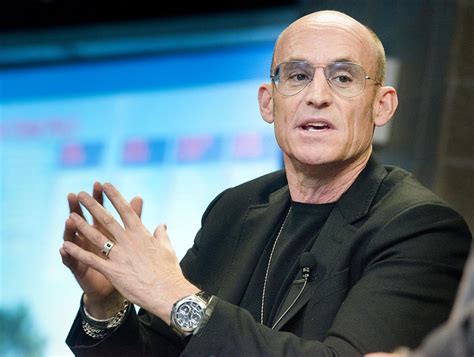Цитата Джеймса Шуровецки
Если вы думали, что появление Интернета, распространение дешевых и эффективных информационных технологий и растущая фрагментация потребительского рынка помогут небольшим компаниям процветать за счет медлительных гигантов из списка Fortune 500, очевидно, вы были неправы.
Связанные цитаты
Акции технологических компаний были кубическим цирконием рынка. Они хорошо выглядели и были сексуальными, но для компании, продающей их, они были всего лишь способом заработать деньги. Это всегда будет преходящим с точки зрения фондового рынка. Что реально, так это то, что компаниям приходится конкурировать. Хорошо используемая технология — отличный инструмент для этого хотя бы потому, что большинство компаний не используют технологии должным образом.
НБА входит в список Fortune 500. Вот как вы на это смотрите. И во всех других компаниях из списка Fortune 500 в мире вы не увидите, чтобы их генеральные директора и главные операционные директора работали в белых футболках, мешковатой одежде и тому подобных вещах. Так что я должен использовать тот же подход.
NBA входит в список Fortune 500. Вот как ты на это смотришь. И во всех других компаниях из списка Fortune 500 в мире вы не увидите, чтобы их генеральные директора и главные операционные директора работали в белых футболках, мешковатой одежде и тому подобных вещах. Так что я должен использовать тот же подход.
В прошлом году журналист Малкольм Гладуэлл провел опрос руководителей компаний из списка Fortune 500 для своей книги Blink. Он обнаружил, что в то время как среди населения США 14,5% всех мужчин имеют рост 6 футов (1,83 м) и выше, среди руководителей компаний из списка Fortune 500 эта доля составляет 58%. И хотя 3,9% взрослых американцев имеют рост 6 футов 2 дюйма или выше, почти треть генеральных директоров были такими же высокими.
Это было то дерево, и мне казалось, что оно, стоя там, похоже на тех людей, великанов твоего детства, с которыми ты встречаешься годы спустя и обнаруживаешь, что они не просто меньше по сравнению с твоим ростом, а совсем меньше, сморщенные возраст. В этом двойном понижении старые гиганты стали пигмеями, пока вы смотрели в другую сторону.
Мы были конечными потребителями этой вещи, и мы думали: «Каждый студент колледжа сойдет с ума. Старшеклассники — это познакомит их с музыкой, о которой они не знали. Это будет феномен». Кроме того, казалось, что это было инсайдерским, но оно было доступно для всех. Я подумал: «Кабельные компании подхватят это». Вы думаете о дерьме, которое есть во многих кабельных компаниях, конечно, им это понравится. И мы были просто раздавлены тем, что всем было наплевать.
С тем, как Amazon и eBay стали крупными компаниями, и с тем, как люди осваивают технологии, я подумал, что это настолько очевидно, что это изменит правила игры в этой сфере. Сочетание этих вещей изменит то, что значит для розничной торговли, что значит запускать бренды, что значит общаться с вашим потребителем.
Суть и слава свободного рынка заключается в том, что отдельные фирмы и предприятия, конкурирующие на рынке, обеспечивают постоянно меняющееся сочетание эффективных и прогрессивных товаров и услуг: постоянно совершенствуя продукты и рынки, совершенствуя технологии, сокращая расходы и встречая изменения. запросы потребителей как можно быстрее и эффективнее.
































